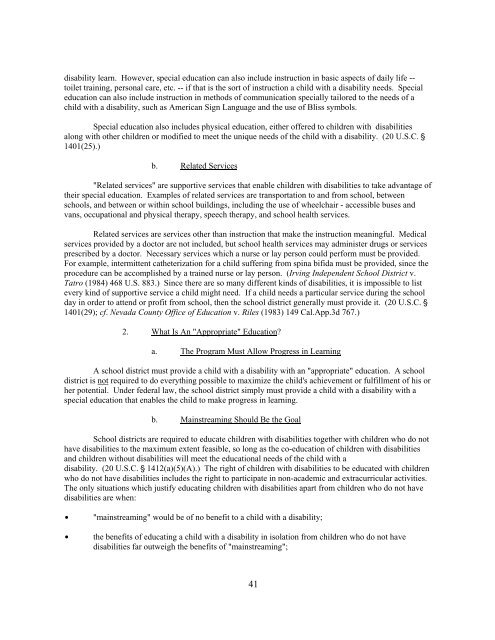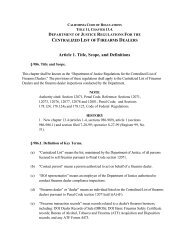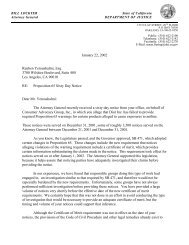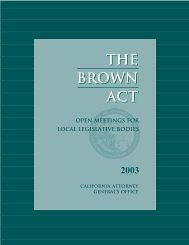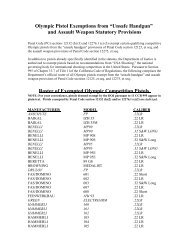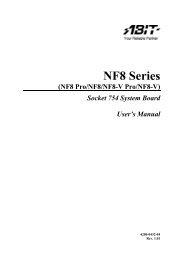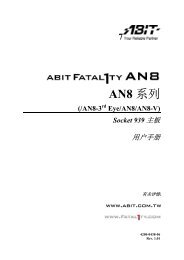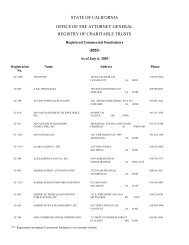Legal Rights of Persons With Disabilities - Ossh.com
Legal Rights of Persons With Disabilities - Ossh.com
Legal Rights of Persons With Disabilities - Ossh.com
You also want an ePaper? Increase the reach of your titles
YUMPU automatically turns print PDFs into web optimized ePapers that Google loves.
disability learn. However, special education can also include instruction in basic aspects <strong>of</strong> daily life --<br />
toilet training, personal care, etc. -- if that is the sort <strong>of</strong> instruction a child with a disability needs. Special<br />
education can also include instruction in methods <strong>of</strong> <strong>com</strong>munication specially tailored to the needs <strong>of</strong> a<br />
child with a disability, such as American Sign Language and the use <strong>of</strong> Bliss symbols.<br />
Special education also includes physical education, either <strong>of</strong>fered to children with disabilities<br />
along with other children or modified to meet the unique needs <strong>of</strong> the child with a disability. (20 U.S.C. '<br />
1401(25).)<br />
b. Related Services<br />
"Related services" are supportive services that enable children with disabilities to take advantage <strong>of</strong><br />
their special education. Examples <strong>of</strong> related services are transportation to and from school, between<br />
schools, and between or within school buildings, including the use <strong>of</strong> wheelchair - accessible buses and<br />
vans, occupational and physical therapy, speech therapy, and school health services.<br />
Related services are services other than instruction that make the instruction meaningful. Medical<br />
services provided by a doctor are not included, but school health services may administer drugs or services<br />
prescribed by a doctor. Necessary services which a nurse or lay person could perform must be provided.<br />
For example, intermittent catheterization for a child suffering from spina bifida must be provided, since the<br />
procedure can be ac<strong>com</strong>plished by a trained nurse or lay person. (Irving Independent School District v.<br />
Tatro (1984) 468 U.S. 883.) Since there are so many different kinds <strong>of</strong> disabilities, it is impossible to list<br />
every kind <strong>of</strong> supportive service a child might need. If a child needs a particular service during the school<br />
day in order to attend or pr<strong>of</strong>it from school, then the school district generally must provide it. (20 U.S.C. '<br />
1401(29); cf. Nevada County Office <strong>of</strong> Education v. Riles (1983) 149 Cal.App.3d 767.)<br />
2. What Is An "Appropriate" Education<br />
a. The Program Must Allow Progress in Learning<br />
A school district must provide a child with a disability with an "appropriate" education. A school<br />
district is not required to do everything possible to maximize the child's achievement or fulfillment <strong>of</strong> his or<br />
her potential. Under federal law, the school district simply must provide a child with a disability with a<br />
special education that enables the child to make progress in learning.<br />
b. Mainstreaming Should Be the Goal<br />
School districts are required to educate children with disabilities together with children who do not<br />
have disabilities to the maximum extent feasible, so long as the co-education <strong>of</strong> children with disabilities<br />
and children without disabilities will meet the educational needs <strong>of</strong> the child with a<br />
disability. (20 U.S.C. ' 1412(a)(5)(A).) The right <strong>of</strong> children with disabilities to be educated with children<br />
who do not have disabilities includes the right to participate in non-academic and extracurricular activities.<br />
The only situations which justify educating children with disabilities apart from children who do not have<br />
disabilities are when:<br />
$ "mainstreaming" would be <strong>of</strong> no benefit to a child with a disability;<br />
$ the benefits <strong>of</strong> educating a child with a disability in isolation from children who do not have<br />
disabilities far outweigh the benefits <strong>of</strong> "mainstreaming";<br />
41


